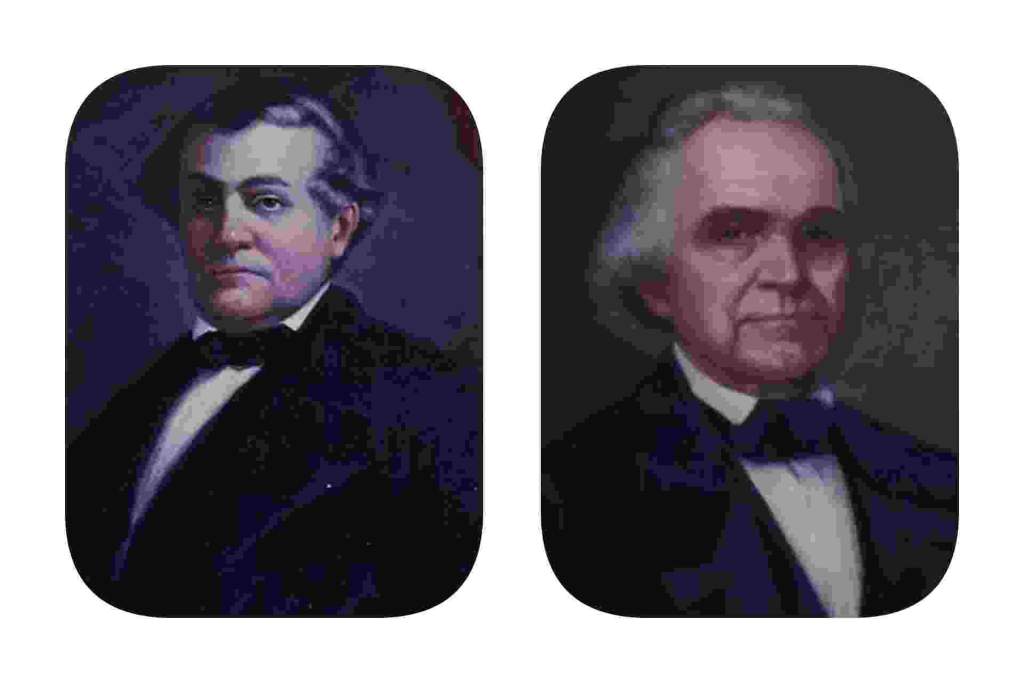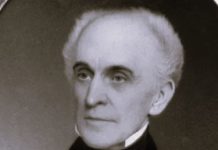John Isaac Guion was the son of Maj. Isaac Guion. He was born in Adams County on Nov. 18, 1802. He was educated in Tennessee, studying law at Lebanon School. There he met William L. Sharkey, whose lifelong friend he was, as well as his law partner at Vicksburg, until Sharkey’s appointment to the bench in 1833. In the following year, he and young Sergeant S. Prentiss became partners, and he was ever afterward the devoted friend of that brilliant genius, as he was of the sturdy Sharkey.
In 1836, the legislature established a criminal court for the river counties, which were then settled, and Guion was appointed the first judge. He resigned from the office, however, after a brief experience. After Prentiss was elected to Congress, John Isaac Guion took over as his law partner, William C. Smedes. In politics, he was a Whig. He was a prominent member of the Jackson Convention of 1849.
In 1848–50, John Isaac Guion was senator of the city of Jackson in the legislature. The Senate of 1850 elected as president Dabney Lipscomb, a Democrat. He was taken sick in the middle of the session, and Judge Guion was elected president pro tempore, an honor he held when the Senate adjourned. Lipscomb must have died subsequently, on Feb. 3, 1851, when Giov. Quitman resigned on account of his Cuban filibuster complications, and Guion became acting governor. He served in this capacity until his term as senator expired with the November 3–4 elections of the same year.
No legislature was meeting at that time, and he had no occasion to prepare any state papers. Subsequently, he was elected a judge of the circuit court, which position he held at the time of his death, June 26, 1855. “Judge Guion was one of those characters whose luster glows with a serene and steady light. No matter how brilliant his colleagues were, his brilliance never paled in comparison.
He was a great favorite with his brothers at the bar and popular with all classes of people,” says Lynch. Reuben Davis wrote that “his mind was drilled for accurate and powerful debate, full of information, deliberate and cool, and always ready for attack or defense.” In the great political campaign of 1844, Henry S. Foote Davis relates that he met with “but one disaster, that of his encounter with Guion.”
Guion, defending the protective tariff, pinned his brilliant antagonist down by using the Socratic method of asking plain questions and forcing an answer.
“His intellect earned him the highest rank as a lawyer, and his noble and generous disposition made him admired by all.”
To make up for the loss of Mrs. Dickerson’s home, a kind of hotel for lawyers and legislators, he immediately opened up with $500 and a subscription list.
John Isaac Guion was a gentleman whose memory will never be forgotten. Wrote by Henry S. Foote.”
The man was an individual with considerable ability and many endearing qualities. Some of nature’s finest gifts had been bestowed upon him. He possessed a most symmetrical person, a face of much regularity and beauty, and a genial expression of countenance that invited confidence and sympathy.”
John Isaac Guion died on June 6, 1855, in Jackson, Mississippi, U.S., at the age of 55.
Read More: Isaac Wheeler Avery – Confederate soldier, Journalist, and Politician







